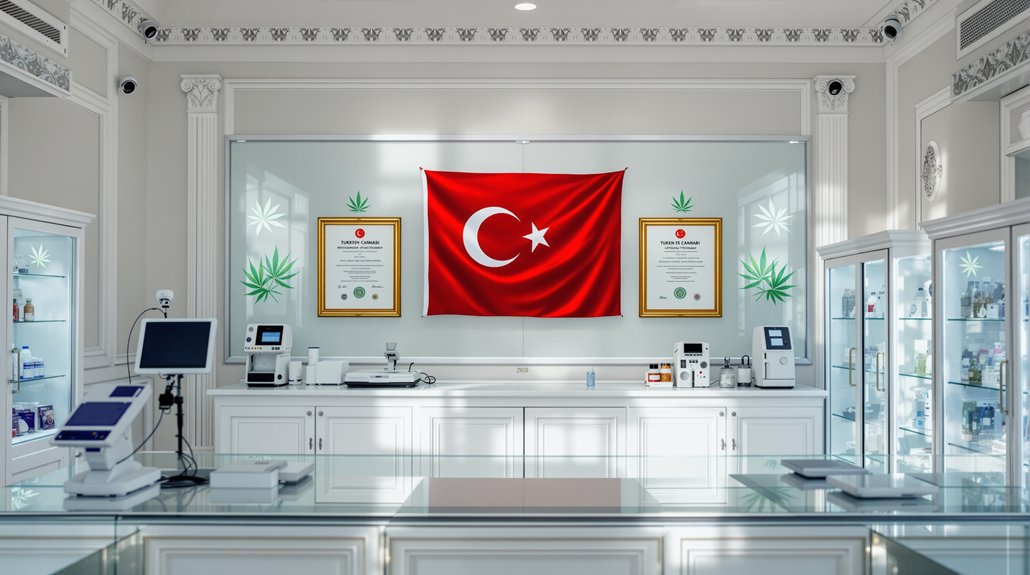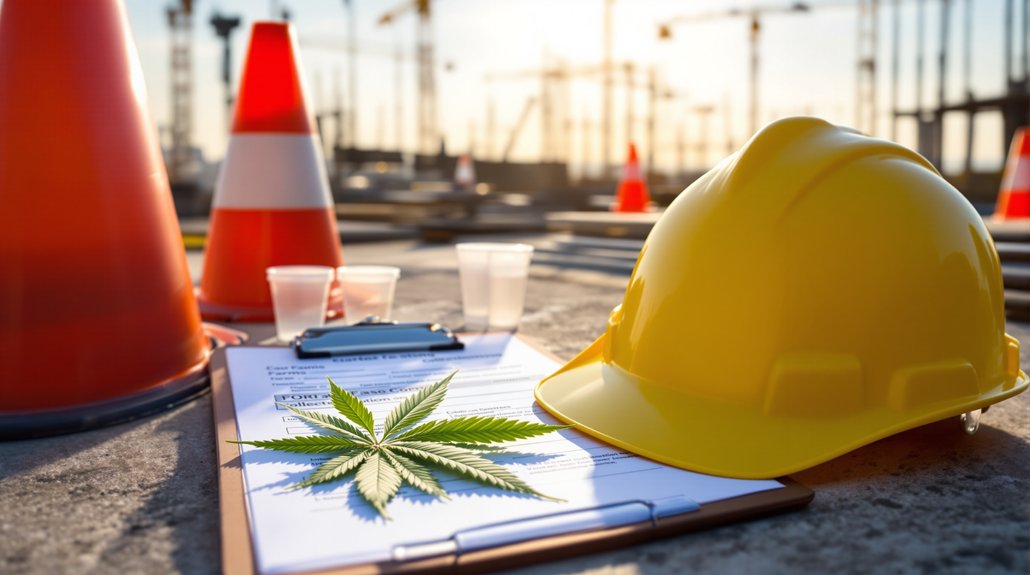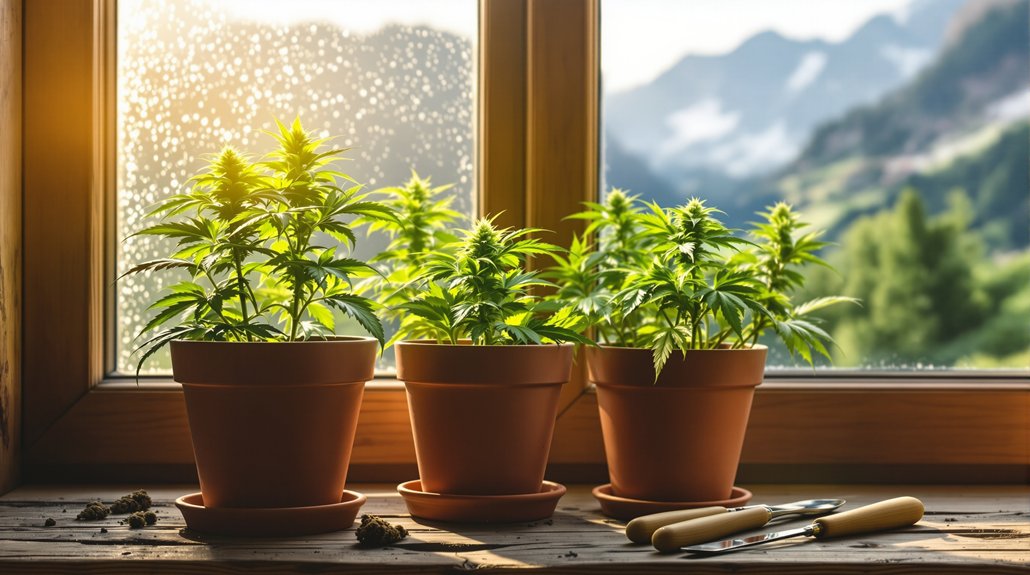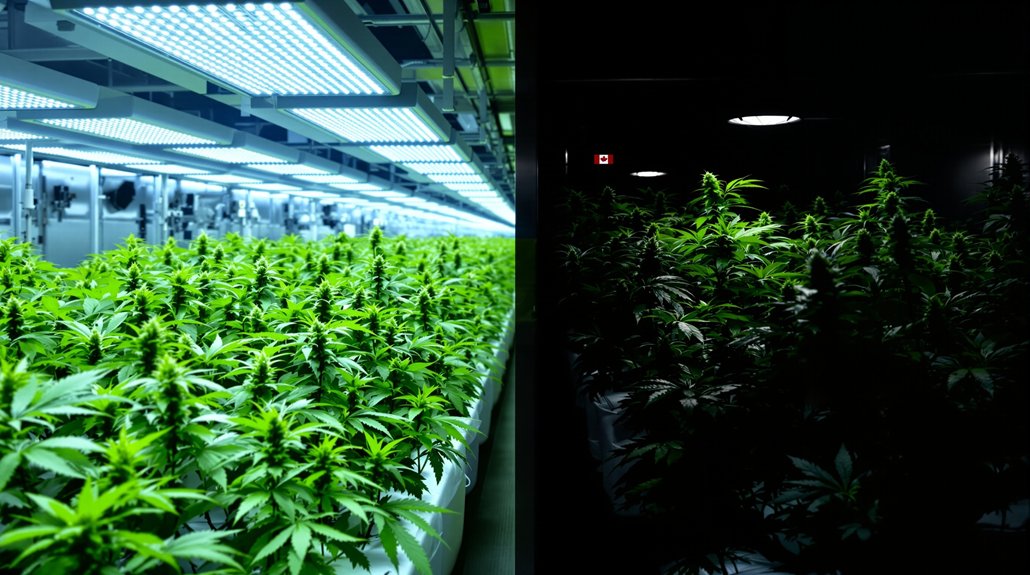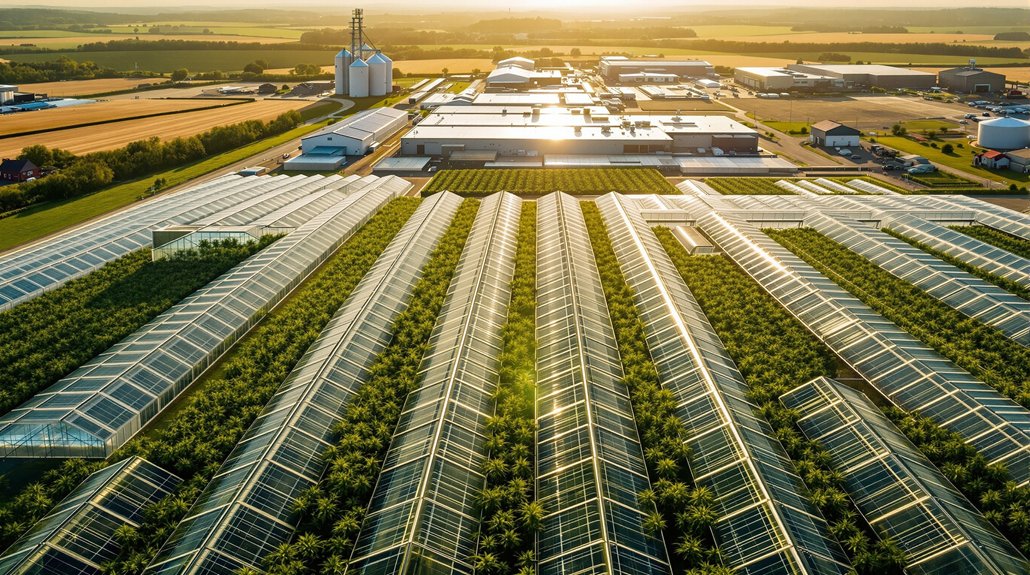Turkey has implemented an extensive regulatory framework for medical cannabis sales, marking a notable shift in the country’s approach to cannabis-derived healthcare products. Law No. 7557, which took effect in July 2025, establishes a strictly controlled system that permits only pharmacy-based sales of low-THC medical cannabis products while maintaining complete prohibition of recreational use.
Turkey’s Law No. 7557 creates a pharmacy-only medical cannabis system while strictly prohibiting recreational use.
The new legislation creates a dual regulatory structure with clear ministerial responsibilities. The Ministry of Agriculture and Forestry oversees all cultivation and harvesting operations, while the Ministry of Health manages processing, pharmacy licensing, record-keeping, and retail sales. This division guarantees thorough oversight throughout the entire supply chain, from seed to patient.
Licensed pharmacies now serve as the exclusive gatekeepers for medical cannabis distribution, operating under stringent requirements that include detailed record-keeping, strict licensing standards, and mandatory reporting protocols. All cannabis products must be dispensed by prescription only, eliminating any possibility of over-the-counter purchases.
An electronic tracking system monitors every transaction and movement of cannabis products, creating an unbroken chain of accountability from cultivation through final sale. The permitted product range focuses exclusively on low-THC, pharmaceutical-grade items that produce non-intoxicating effects. These include specialized medications, health support products, personal care items, and dietary supplements.
While products like Sativex, a cannabinoid-based sublingual spray, were previously available in limited quantities, the new law notably expands the types of hemp-derived products that can be legally sold. However, high-THC cannabis products and conventional medical marijuana remain strictly prohibited.
Patient eligibility is carefully controlled through physician oversight and government-approved condition lists. Qualified conditions include cancer, epilepsy, PTSD, and chronic pain, with products primarily used for analgesic and antidepressant effects. The Ministry of Health maintains authority over eligibility guidelines and can update approved condition lists as medical evidence evolves.
Turkey’s domestic production capacity has expanded notably since hemp cultivation was legalized across 19 provinces in 2016. The new law plans further expansion under strict licensing requirements administered by the Ministry of Food, Agriculture, and Livestock. This legislation builds upon Turkey‘s existing industrial hemp program that began in select provinces, extending the framework to include processing, distribution, and retail operations. Cultivation permits remain valid for three years and are issued only to authorized producers who meet rigorous standards for medical and industrial applications.
The regulatory changes position Turkey to compete more effectively in the global cannabinoid market while attracting pharmaceutical investment and reducing import dependence. This controlled approach allows the country to develop a legitimate medical cannabis industry while maintaining strict prohibitions against recreational use and black market activity. The legislation was immediately effective upon its publication in the Official Gazette on July 24, 2025, demonstrating the government’s commitment to rapid implementation of these healthcare reforms.
